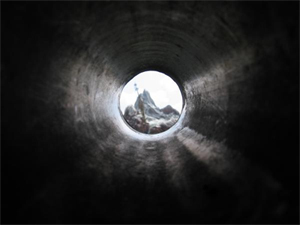Children And Their Dream Life
Submitted by Edgar Reyes on Mon, 04/01/2019 - 06:14I am a father of 2 little kids of ages 7 and 4.
Just about every morning I ask my kids if they remember their dreams. I do this not only because it's fun to tell these stories to one another, but also because I hope to instill in them some sort of feeling that there is something special about these experiences we call dreams.
I am finding that either they don't recall their dreams very well, they aren't very interested in this exercise, or I simply recall mine a lot better than they do. But the good thing is that I see their little gears turning when I ask them the question and smiles and laughter ensue when they manage to pull the experiences out of their memory banks.
Dreams are the entryway into the subtle world. So if I am able to get these little ones to look at their dream experiences with wonder and interest, then I believe I've done something very good for them in this life.





